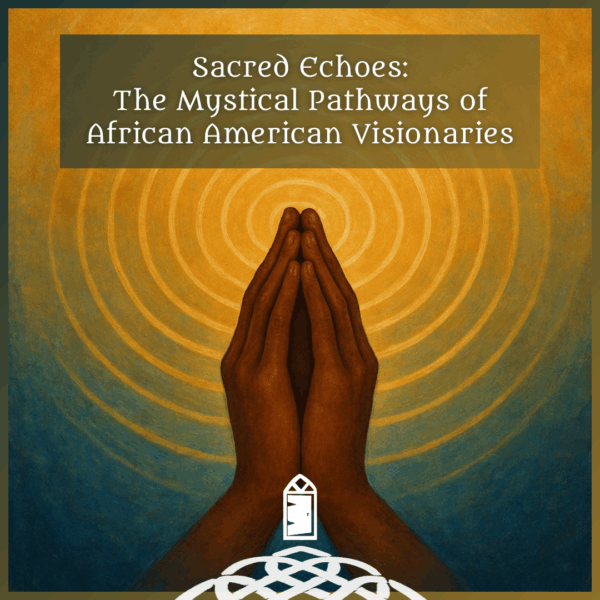This being human is a guest house.
Every morning is a new arrival.
A joy, a depression, a meanness,
some momentary awareness comes
as an unexpected visitor.
Welcome and entertain them all!
Even if they’re a crowd of sorrows,
who violently sweep your house
empty of its furniture,
still, treat each guest honorably.
[S]he may be clearing you out
for some new delight.
The dark thought, the shame, the malice,
meet them at the door laughing,
and invite them in.
Be grateful for whoever comes,
because each has been sent
as a guide from beyond.
-Rumi
I am very grateful for the many thoughtful comments and emails I received in response to my post from Monday on Wonder and Despair. If you haven’t read all of the comments I encourage you to do so.
 The poem above by Rumi has been one of those core life poems for me for several years — a poem that speaks to me so beautifully and simply about what I believe to be one of life’s central and most difficult tasks.
The poem above by Rumi has been one of those core life poems for me for several years — a poem that speaks to me so beautifully and simply about what I believe to be one of life’s central and most difficult tasks.
Over time, as I lived into the poem’s imagery, I began to discover a connection to the Benedictine concept of hospitality that plays a central role in my spiritual life and practice. St. Benedict wrote in his Rule: “All guests who present themselves are to be welcomed as Christ, for him himself will say: I was a stranger and you welcomed me.” The core of his idea was that everyone who comes to the door of the monastery, and by extension the door to our lives—the poor, the traveler, the curious, those of a different religion, social class, or education — should be welcomed in, not just as an honored guest, but as a window onto the sacred presence. For Benedict, our encounter with the stranger, the unknown, the unexpected, the foreign elements that spark our fear, are precisely the places where we are most likely to encounter God.
I began to see how we could apply this kind of hospitality to our very selves, to all of the elements about us that we fear and reject — the painful and dark feelings, our shadow side, the things we do and long for we don’t want anyone to know about. I began to see this as a kind of radical hospitality of the soul. The word radical comes from the Latin word radix meaning root. Radical hospitality might be seen as hospitality that proceeds from the very core or root of who we are, an invitation to extend a welcome to the stranger that dwells inside of you. We are made up of multiple inner characters and voices and some of them get invited to our inner table, while others are standing out in the rain waiting to be let in to feast and share their wisdom with us.
Rumi’s poem commands us to make space for the whole range of guests who might arrive — the feelings we experience that we push back, resist, numb ourselves to — which might come bearing gifts.
How do you welcome in the range of your feelings without being swept away by them? One way to do this is by cultivating an inner witness. Meditation practice can nurture our ability to sit and observe the rise and fall of our inner lives without resisting or seizing any particular moment. When we offer ourselves the space to simply be with whatever is happening inside, without judgement, we begin to see that each of those feelings passes with time. The inner witness is that part of ourselves — described in different ways by many traditions — that can be fully present without anxiety, that can offer radical hospitality to whatever knocks at our inner door.
We are called to be a witness to each other as well — to be fully present to the sorrow and despair of another without rushing to console or offer hope to circumvent our own discomfort. It is because I have treasured friends and other support in my life who provide a safe container for me to explore the depths of my experience, that I am able to walk into the feelings of despair when they come, rather than run the other way. It is because I make a regular practice of nurturing the ability of my inner witness to be present to the guests arriving at my inner door welcoming them in. When the difficult feelings arrive, I breathe deeply and make space so I can listen to what messages they have to offer me rather than resist and leave them banging on the door. Some days this is easier than others, some days I still want to pile the furniture to prevent their entry. But as Rumi said so wisely 800 years ago, treat each guest honorably as a guide much wiser than myself. In that act of hospitality I will walk in solidarity with those who are shrouded in pain. I will come to know how essential kindness is. I will discover moments of wonder. I will come face to face with a different kind of hope, one that rises like heat from wrestling bodies.
-Christine Valters Paintner @ Abbey of the Arts
(photo of door handle taken in Ireland last summer)




12 Responses
Wonderful poem. “Being human” isn’t it a wonderful thing – and we take it so for granted, piece of cake anyone can do it, right. We so judge who we are at any moment, turning our ownselves away from the door. Kinder to strangers then we are often to ourselves. And if we all contain a spark, an internal presence, of the divine, what have we then done.
Ah, Christine, today you managed to make me cry. A little bit. Two drops. Our poor selves sometimes get short shrift when we look outwards to concentrate on others. I love the imagery of comfort and hospitality to our shadow side.
And I, too, love the connection between this poem I so love and the Benedictine spirituality that is so important to me.
Kel, I am indeed blessed. I also know plenty of folks who want to move me to consolation as quickly as possible. This ability to stay present with me is one of the qualities I find absolutely necessary for a close friend, for someone with whom I will allow myself to be deeply vulnerable.
Thanks kigen, I also love the way Rumi and Benedict come together in conversation here, something I would like to explore more in other ways too.
Thanks Laure, I consider poetry to be one of my sacred scriptures, having as much impact (and often more) as texts considered “canonical”. I love your awareness of the excitement rather than dread brewing in you!
You are most welcome Val.
Thanks Bette, when I saw the door in my photo files it felt like just the right image. :-)
blisschick, yes I also love the image of meeting them at the door laughing. A piece I didn’t include here is that I try and keep my sense of humor about this work too, it’s not all serious. Sometimes I can even be in a playful relationship to despair. Thanks for the lovely quote, although I do not believe that God “sends us” despair, I think it rises up naturally out of the texture of our human lives, but I do believe that the divine presence allows us the strength to transform it into an awakening.
Thanks lucy, that is all you need to say. :-)
christine, this post has spoken deeply to me this morning. i will leave it at that for now :-)
xoxoxoxo
One of my favorite Rumi pieces, which I have written into so many cards and sent through the mail — hopefully, on wings! “…meet them at the door laughing…” is my favorite part. And I love your juxtaposition of Rumi with Benedictine spirituality. Excellent. I love, too, to point out to people how all mystics, across all traditions, are really saying the same things — which, I think, is reason enough to believe and hope and continue on our journeys. And today, I came across this and thought of you instantly: “God does not send us despair in order to kill us; he sends it in order to awaken us to new life.” – Hermann Hesse (I found it at http://www.worldprayers.org to which I may be a very late comer, but I so enjoy their prayer wheel. It’s hard to stop spinning it!)
You are right, Christine. I want to be able to be a good host to those who come to me — and to not jump right into cheerleading or fix-it mode, but to just Listen. I think that simply listening to others is all I need to give, and I have to always remind myself. I like this orange door — even the color and the handle remind me of Rumi ;-)
This is a post I will share with many. It really resonates with me.
Thank you for opening up your world and allowing us a glimpse of what can be.
“Over time, as I lived into the poem’s imagery, I began to discover a connection to the Benedictine concept of hospitality that plays a central role in my spiritual life and practice.”
What honor you give to Rumi and I suspect to other poets whose poems’ imagery you have “lived into!” Yes, poetry is living … breathing, and to join our own living to it and into it is a deep practice.
“… everyone who comes to the door of the monastery, and by extension the door to our lives—the poor, the traveler, the curious, those of a different religion, social class, or education — should be welcomed in, not just as an honored guest, but as a window onto the sacred presence. For Benedict, our encounter with the stranger, the unknown, the unexpected, the foreign elements that spark our fear, are precisely the places where we are most likely to encounter God.”
My consciousness was pricked by these words. I have not given much if any thought to how I ‘welcome’ life (be it in the form of experience, feelings, thoughts, nature/creation or people). To choose to receive guests as a window into the sacred presence is to choose to live and relate from a decidedly more intentional and reverential place. I sense myself moving in closer to a time when I will have a dynamic encounter with some of what I am fearful of. With the thought that what sparks fear in me is the place where I am most likely to encounter God, I am quickened to more excitement than dread.
“… treat each guest honorably as a guide much wiser than myself.” I find myself wondering how teachable I really am. How able I am to receive the guide and the teacher.
Thank you, Christine, for opening a door for me. The door itself is a beautiful one, as is the threshold of it. But what is on the other side … is breathtaking!
Thank you for this miraculous post, Christine, so beautifully contemplated and illustrated!
“All guests who present themselves are to be welcomed as Christ, for him himself will say: I was a stranger and you welcomed me.”
I love that you are working in this post with the combined teaching of Rumi and St. Benedict. In terms of that inner welcomeness, there is a great hospitality to be enjoyed and celebrated in world religions!
great poem by rumi, thanx for sharing it
you are truly blessed if you have friends who don’t feel they must rescue you or console you with pithy platitudes, but who are simply willing to be there